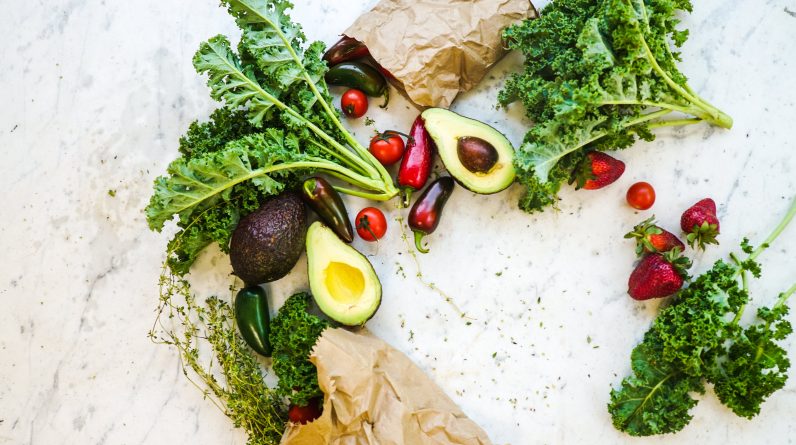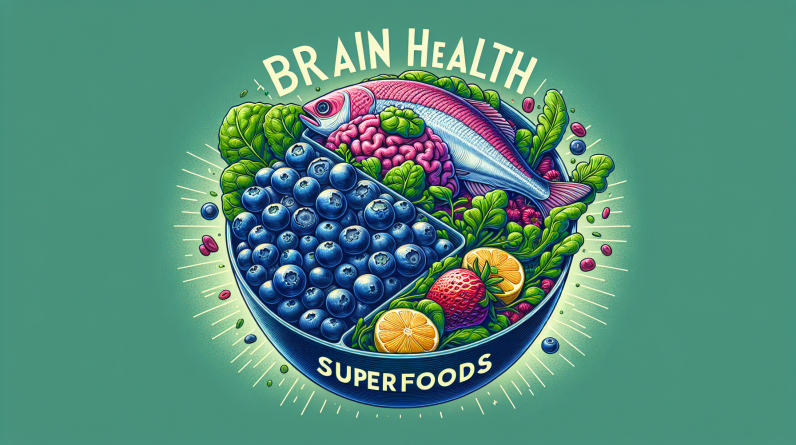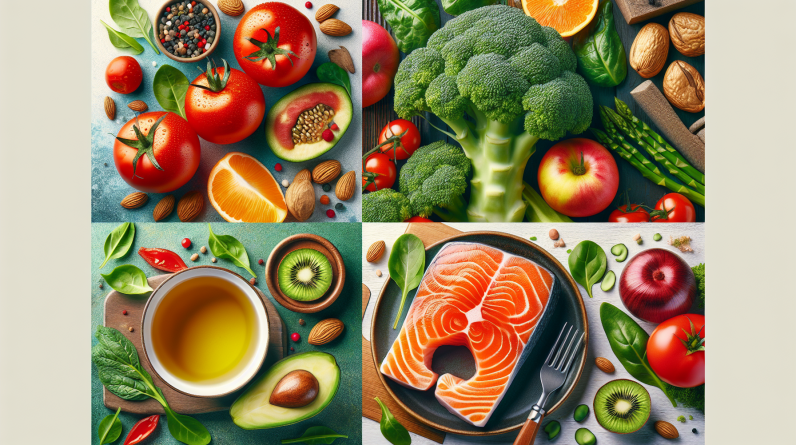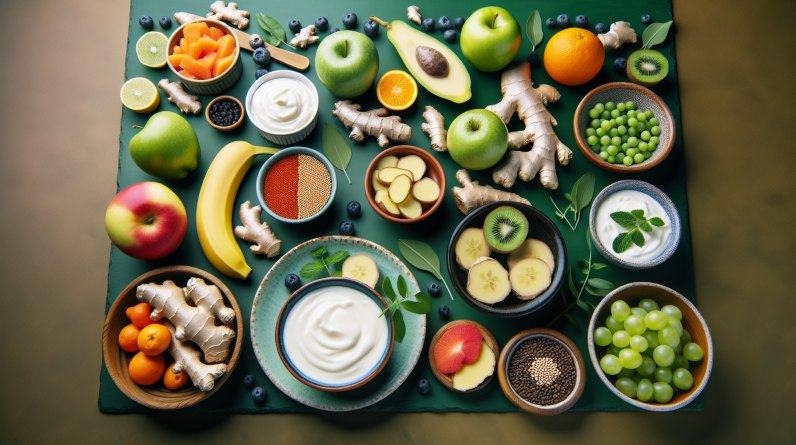
Got hit with food poisoning? Don’t worry, we’ve got your back. In this article, you’ll discover a range of superfoods that can help you recover from that unpleasant bout of food poisoning. From soothing ginger and hydrating coconut water to revitalizing leafy greens and immune-boosting bone broth, these superfoods will work their magic and have you back on your feet in no time. So, if you’re looking to bounce back from food poisoning and regain your strength, keep reading to learn about the superfoods that will help you on your road to recovery.
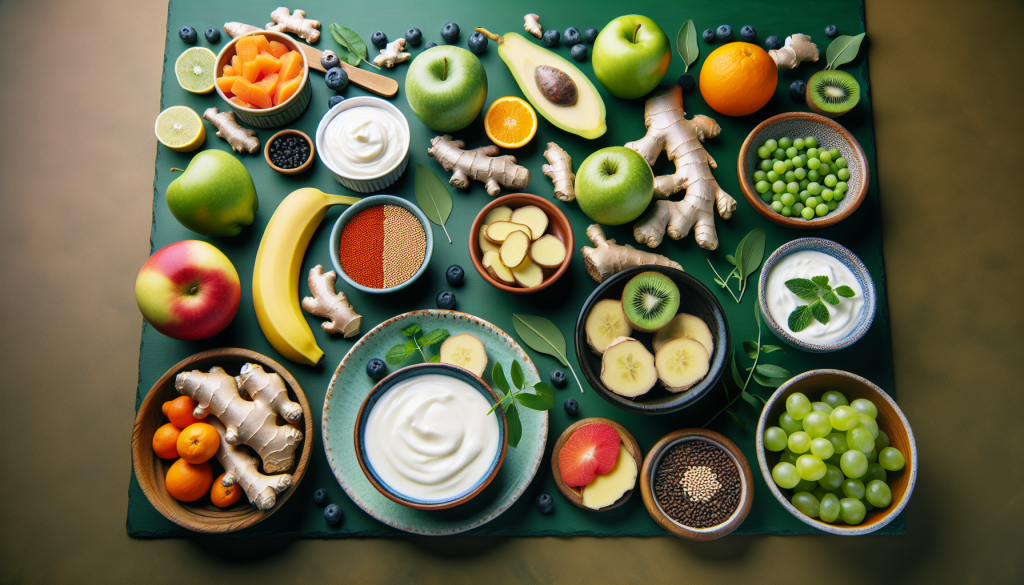
Overview of Food Poisoning
What is Food Poisoning?
Food poisoning is a common yet unpleasant condition that occurs when you consume contaminated food or beverages. It is caused by harmful bacteria, viruses, parasites, or toxins that contaminate the food. These microorganisms can multiply in the food, leading to various symptoms and discomfort.
Common Causes of Food Poisoning
Food poisoning can be caused by a variety of factors. Poor food handling and preparation practices, such as improper storage, inadequate cooking, or cross-contamination, can introduce harmful microorganisms into the food. Consuming raw or undercooked meats, poultry, seafood, eggs, or unpasteurized dairy products can also increase the risk of food poisoning. Moreover, contaminated water or contaminated surfaces used during food preparation can contribute to foodborne illnesses.
Symptoms of Food Poisoning
The symptoms of food poisoning can range from mild to severe, depending on the type and amount of bacteria or toxins ingested. Common symptoms include nausea, vomiting, diarrhea, abdominal pain or cramps, fever, and headaches. These symptoms typically occur within a few hours to a few days after consuming contaminated food and can last for a few hours to several days.
Recovery Time for Food Poisoning
The recovery time for food poisoning varies depending on the individual and the severity of the illness. In mild cases, the symptoms may resolve within a couple of days with proper rest and hydration. However, in more severe cases, it may take up to a week or longer for the body to fully recover. It is essential to listen to your body and give it the time it needs to heal.
Importance of Superfoods
Role of Superfoods in Recovery
Superfoods play a crucial role in the recovery process from food poisoning. These nutrient-dense foods are packed with vitamins, minerals, antioxidants, and other beneficial compounds that can help boost your immune system, aid in digestion, reduce inflammation, and promote overall healing. Including superfoods in your diet can help replenish the nutrients lost during food poisoning and speed up the recovery process.
Nutritional Benefits of Superfoods
Superfoods offer a wide range of nutritional benefits that can support your body’s recovery. For instance, ginger, bananas, and yogurt are gentle on the stomach and can help soothe nausea and aid in digestion. Garlic has antimicrobial properties that can help fight off any lingering bacteria in the body. Bone broth is rich in collagen, amino acids, and minerals, which can help strengthen the gut lining and support the immune system. Turmeric is known for its anti-inflammatory properties, while applesauce provides a good source of easily digestible carbohydrates. Coconut water helps replenish electrolytes, chamomile tea promotes relaxation, and blueberries are packed with antioxidants and fiber.
Superfoods to Boost Immune System
Certain superfoods have immune-boosting properties that can be particularly beneficial during the recovery process. Foods like ginger, garlic, turmeric, and blueberries are known for their immune-strengthening effects. These foods contain compounds that help stimulate the immune system, reduce inflammation, and fight off harmful pathogens. By incorporating these superfoods into your diet, you can support your body’s defenses and aid in a quicker recovery from food poisoning.
Superfoods for Quick Recovery
Ginger
Ginger is a powerful superfood that has long been used to ease digestive discomfort and relieve nausea. It contains gingerol, a bioactive compound with anti-inflammatory and antioxidant properties. You can incorporate ginger into your diet by using it in smoothies, teas, or adding it to stir-fries for a flavorful and soothing boost.
Bananas
Bananas are a go-to superfood for quick recovery due to their soft texture and high nutritional value. They are easily digestible and can provide relief from nausea and diarrhea. You can enjoy bananas as a base for smoothies or eat them plain for a quick energy boost.
Plain Yogurt
Plain yogurt is a probiotic-rich superfood that can support your gut health during the recovery process. Probiotics are beneficial bacteria that help restore the balance of gut flora and aid in digestion. Enjoy plain yogurt with fresh fruits for a delicious and nourishing snack.
Garlic
Garlic is a potent superfood known for its antimicrobial properties. It contains allicin, a compound that has been shown to combat various bacteria, viruses, and parasites. Adding garlic to soups, sauces, or roasted vegetables can enhance the flavor while providing additional health benefits.
Bone Broth
Bone broth is a nutrient-dense superfood that can help heal and seal the gut lining. It is rich in collagen, gelatin, amino acids, and minerals, which support gut health and reduce inflammation. Enjoy bone broth as a warm and comforting soup during your recovery.
Turmeric
Turmeric is a vibrant superfood that contains curcumin, a potent anti-inflammatory compound. It can help reduce inflammation in the body and promote healing. Add turmeric to curries, golden milk, or smoothies for a burst of flavor and health benefits.
Applesauce
Applesauce is a gentle and easily digestible superfood that provides a source of easily absorbed carbohydrates. It can help replenish energy levels and provide essential nutrients during the recovery process. Enjoy applesauce on its own or as a topping for oatmeal or yogurt.
Coconut Water
Coconut water is a hydrating superfood that is naturally rich in electrolytes. It can help replenish fluids and essential minerals lost during food poisoning. Enjoy coconut water as a refreshing beverage to stay hydrated and support your body’s recovery.
Chamomile Tea
Chamomile tea is a soothing superfood that can help promote relaxation and relieve digestive discomfort. It has calming properties that can aid in reducing inflammation and supporting digestion. Sip on chamomile tea throughout the day for a calming and healing effect.
Blueberries
Blueberries are a nutrient-packed superfood that is rich in antioxidants and fiber. They can help reduce inflammation, support the immune system, and aid in digestion. Add blueberries to your breakfast routine by incorporating them into smoothies, oatmeal, or yogurt for a delightful and nutritious start to your day.
How to Incorporate Superfoods
Ginger in Smoothies or Stir-Fries
To incorporate ginger into your diet, add freshly grated ginger to your favorite smoothie recipe or use it as a flavorful addition to stir-fries. The natural spiciness and soothing properties of ginger make it an excellent ingredient for adding both flavor and health benefits.
Bananas as a Base in Smoothies
Use ripe bananas as a creamy and nutritious base for your smoothies. Combine them with other superfoods, such as spinach, blueberries, or almond butter, for a refreshing and nutrient-packed beverage.
Plain Yogurt with Fresh Fruits
Pair plain yogurt with a variety of fresh fruits, such as berries, sliced bananas, or chopped apples, for a delicious and nutritious snack. The combination of probiotics from the yogurt and the antioxidants from the fruits can provide a powerful boost to your recovery process.
Using Garlic in Soups or Sauces
Enhance the flavor and health benefits of your soups, sauces, or roasted vegetables by adding minced or crushed garlic. Garlic not only adds a savory taste to your dishes but also boosts their nutritional value with its antimicrobial properties.
Drinking Bone Broth as a Soup
Enjoy bone broth as a warm and comforting soup during your recovery. It can be consumed on its own or used as a base for other soups or stews. The rich collagen content in bone broth can help heal and support your digestive system.
Adding Turmeric to Curries or Golden Milk
Incorporate turmeric into your diet by adding it to curries, soups, or golden milk. The vibrant color and distinct flavor of turmeric can enhance the taste of your dishes while providing its anti-inflammatory and healing properties.
Eating Applesauce as a Snack
Snack on applesauce to replenish your energy levels and provide essential nutrients during your recovery. Enjoy it on its own or as a topping for oatmeal, yogurt, or toast.
Hydrating with Coconut Water
Stay hydrated and replenish your electrolytes by enjoying coconut water as a refreshing beverage. It is a natural and healthy alternative to sugary drinks and can aid in the recovery process.
Sipping Chamomile Tea
Sip on chamomile tea throughout the day to promote relaxation and soothe your digestive system. Enjoy the calming properties of chamomile while benefiting from its anti-inflammatory effects.
Incorporating Blueberries in Breakfast
Incorporate blueberries into your breakfast routine by adding them to your favorite dishes. Mix them into smoothies, sprinkle them over oatmeal, or enjoy them with yogurt for a tasty and nutritious start to your day.
Foods to Avoid during Recovery
Spicy and Greasy Foods
During the recovery process, it is best to avoid spicy and greasy foods as they can further irritate your digestive system. These foods can potentially worsen symptoms such as nausea, abdominal pain, and diarrhea.
Dairy Products
Dairy products, especially if consumed in large quantities or when lactose intolerant, can cause digestive discomfort and further upset your stomach. Give your body a break from dairy products during the recovery phase.
Raw Fruits and Vegetables
Raw fruits and vegetables, especially those with tough fibers, can be harder to digest and may worsen symptoms such as bloating or gas. Opt for cooked or easily digestible fruits and vegetables during the recovery period.
Caffeinated and Alcoholic Beverages
Caffeinated and alcoholic beverages can dehydrate your body and worsen symptoms of food poisoning. Avoid coffee, tea, energy drinks, alcohol, and other caffeinated or alcoholic beverages until you have fully recovered.
Processed or Packaged Foods
Processed or packaged foods often contain additives, preservatives, and artificial ingredients that can be harsh on your digestive system. Stick to fresh and natural foods during your recovery for optimum healing.
Hydration and Rest
Importance of Hydration
Staying hydrated is essential during the recovery process. Food poisoning can cause vomiting and diarrhea, leading to dehydration. Proper hydration helps replenish lost fluids, maintain electrolyte balance, and support the body’s natural healing process.
Recommended Fluid Intake
Drink plenty of fluids throughout the day to stay hydrated. Water is the best choice, as it does not contain any additional sugars or additives. You can also include hydrating beverages such as herbal teas, coconut water, or diluted fruit juices. Aim to drink at least 8 cups (64 fluid ounces) of fluids per day or more if you are experiencing severe diarrhea or vomiting.
Rest and Recovery
Rest is crucial for your body to recover from food poisoning. Listen to your body and give it the time it needs to heal. Avoid strenuous activities and get plenty of sleep to support your immune system and aid in the recovery process.
Seeking Medical Attention
When to Seek Professional Help
While most cases of food poisoning resolve on their own with proper rest and hydration, there are instances when seeking medical attention is necessary. If your symptoms persist for more than a few days, worsen in severity, or if you notice blood in your stool or vomit, it is important to consult a healthcare professional.
Signs of Severe Food Poisoning
Some signs that indicate severe food poisoning include high fever (above 101.5°F or 38.6°C), signs of dehydration (excessive thirst, dry mouth, little or no urine output), intense abdominal pain or cramping, severe vomiting or diarrhea, and confusion or dizziness. If you experience any of these symptoms, seek immediate medical attention.
Medical Treatments for Food Poisoning
In severe cases, medical treatments may be needed to manage food poisoning. These treatments may include intravenous (IV) fluids to treat dehydration, antibiotics to fight off bacterial infections, and antiemetic medications to relieve nausea and vomiting. It is essential to follow your healthcare provider’s advice and treatment plan for a safe and speedy recovery.
Prevention Tips
Safe Food Handling
Practicing safe food handling is crucial in preventing food poisoning. Wash your hands thoroughly with soap and warm water before and after handling food. Clean all surfaces and utensils that come into contact with raw meats, poultry, seafood, or eggs to prevent cross-contamination. Use separate cutting boards and utensils for raw and cooked foods, and ensure that food is cooked to the proper temperature to kill any harmful bacteria.
Proper Cooking Temperatures
Cooking food to the proper internal temperature is essential in killing harmful microorganisms. Use a food thermometer to ensure that meats, poultry, seafood, and eggs are fully cooked. The internal temperature should reach the recommended safe temperature, which varies for different types of food.
Hygienic Food Preparation
Maintaining proper hygiene during food preparation is vital to prevent food poisoning. Wash fruits and vegetables thoroughly before consumption. Avoid using expired or damaged food items. Store food at the appropriate temperature to prevent bacterial growth. All these hygienic practices can significantly reduce the risk of foodborne illnesses.
Understanding Expiration Dates
Understanding expiration dates is crucial in preventing the consumption of expired or spoiled food. Pay attention to “use by” dates and “sell by” dates when purchasing food items. Properly store perishable items, and discard any food that has passed its expiration date or shows signs of spoilage.
Be Mindful of Cross-Contamination
Cross-contamination occurs when bacteria from raw foods transfer to ready-to-eat foods. To prevent cross-contamination, ensure that raw meats, poultry, seafood, or eggs are stored separately from ready-to-eat foods. Use separate cutting boards, utensils, and containers for different types of food. Clean and sanitize all surfaces and utensils after each use to prevent the spread of harmful bacteria.
Conclusion
Food poisoning is an unpleasant experience that can disrupt your daily life. However, by following proper hygiene practices, practicing safe food handling, and incorporating superfoods into your diet, you can speed up the recovery process and support your body’s healing. Remember to stay hydrated, get adequate rest, and seek medical attention if necessary. With these tips and precautions, you can prevent foodborne illnesses and maintain a healthy and nourished body.



